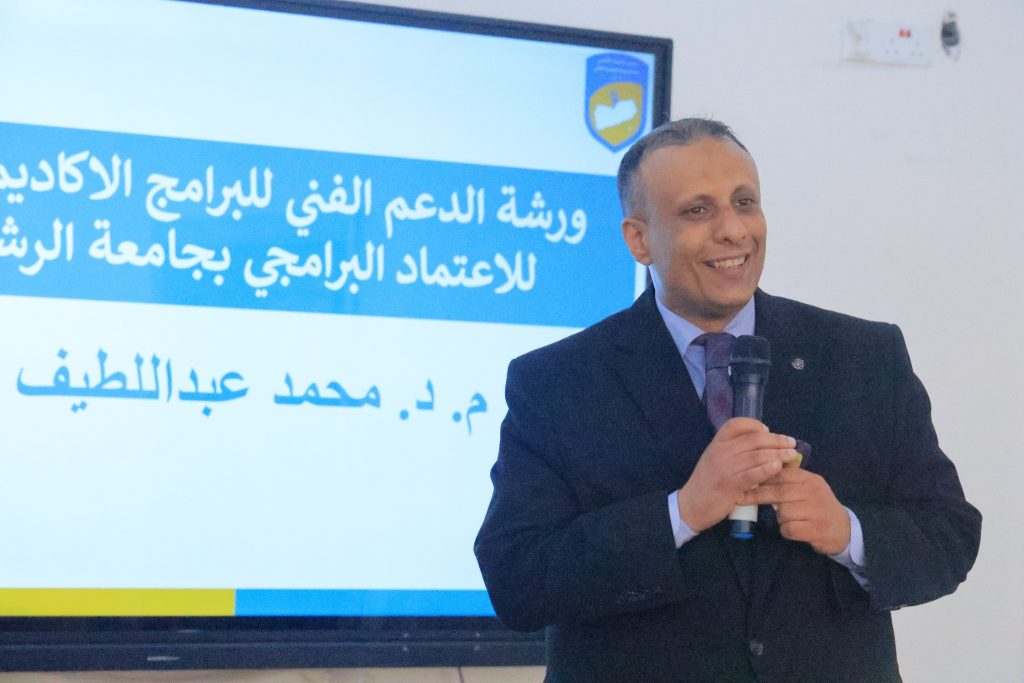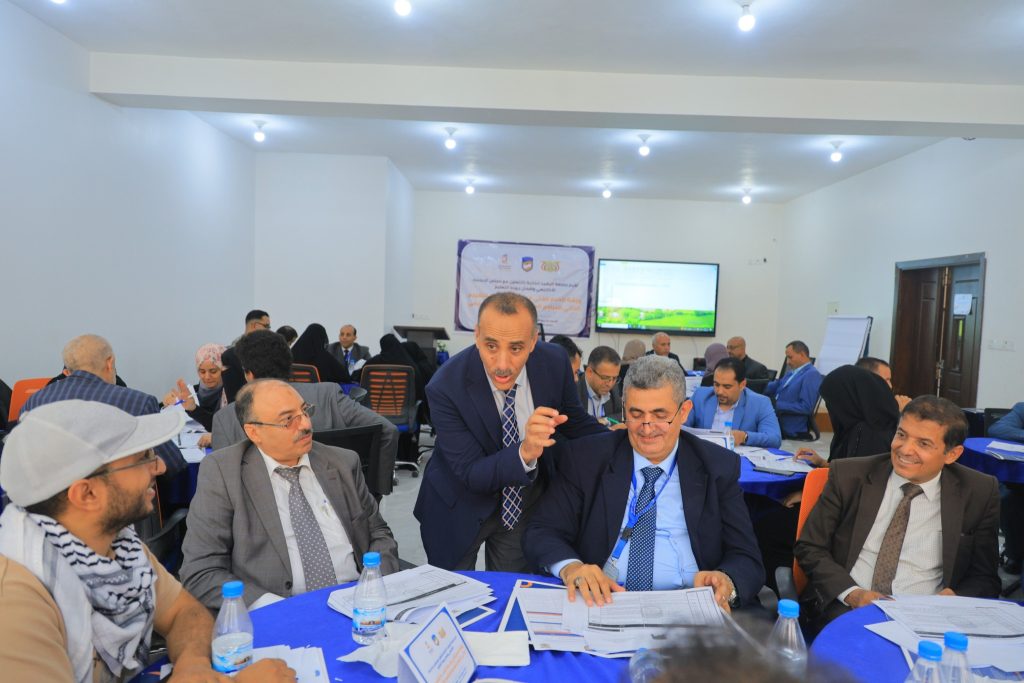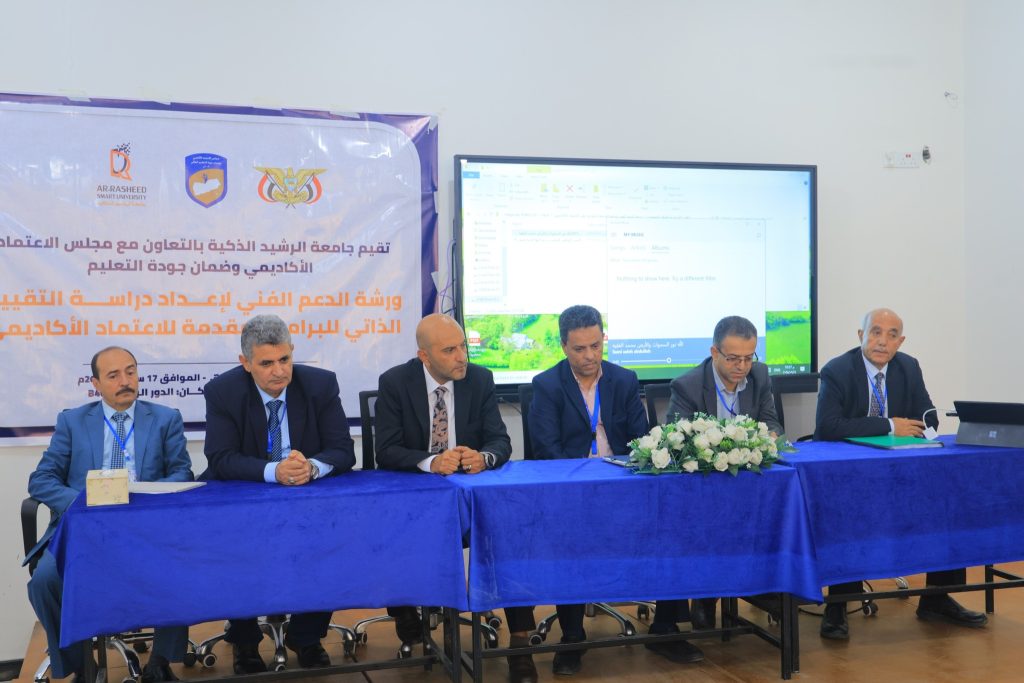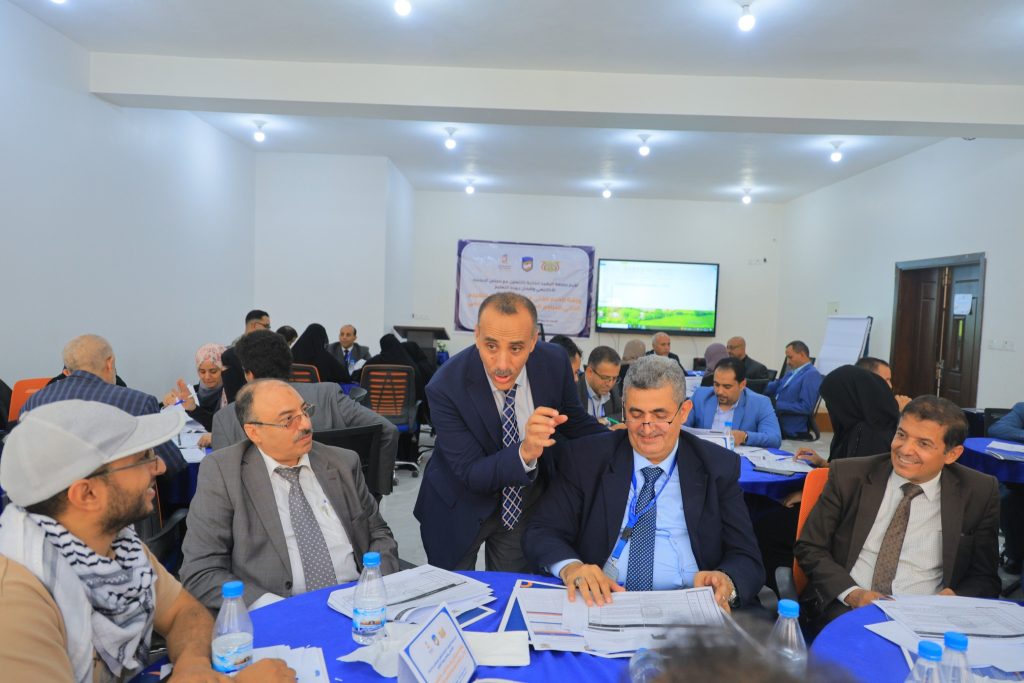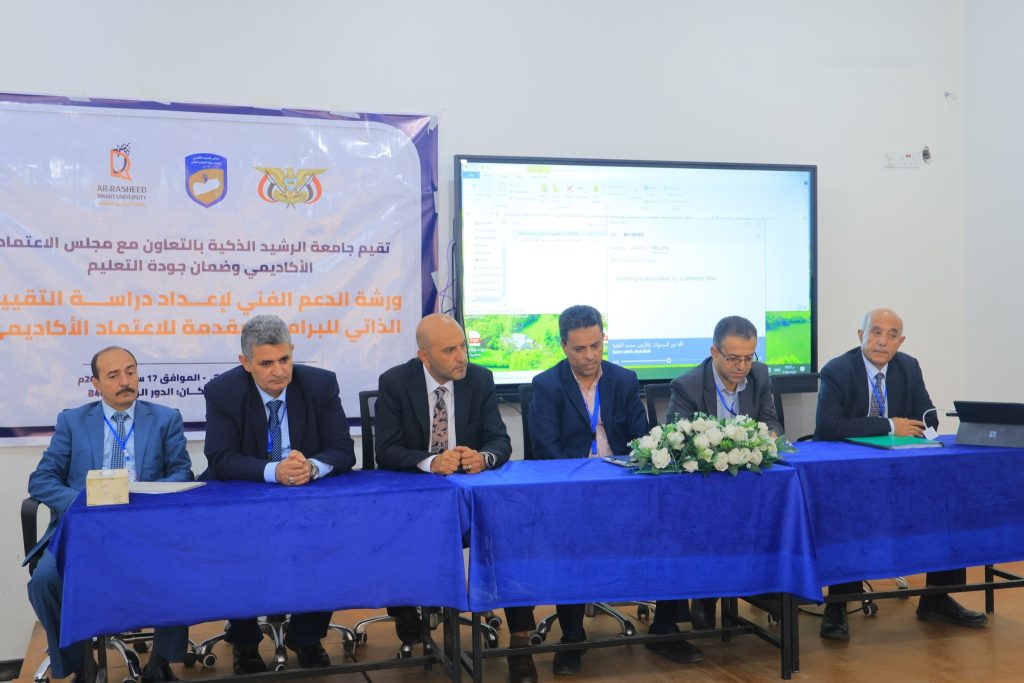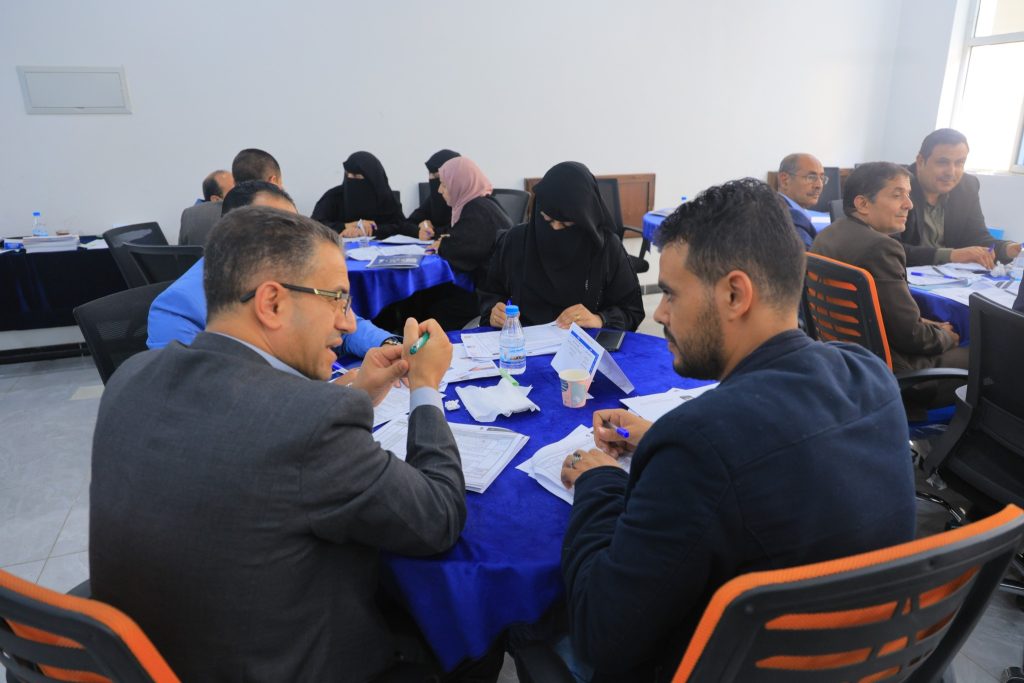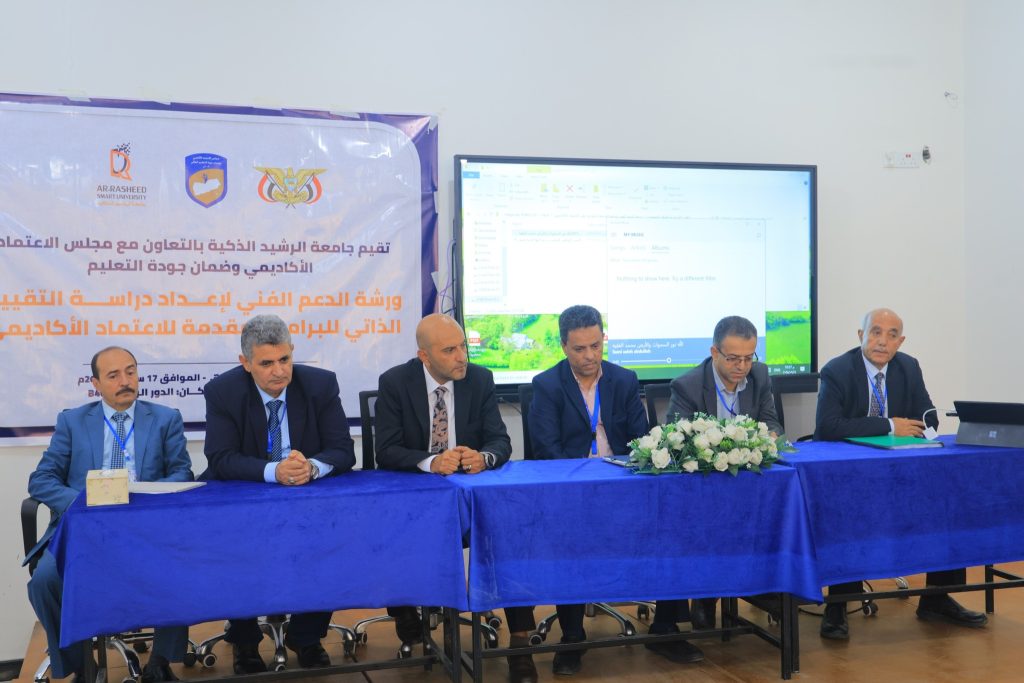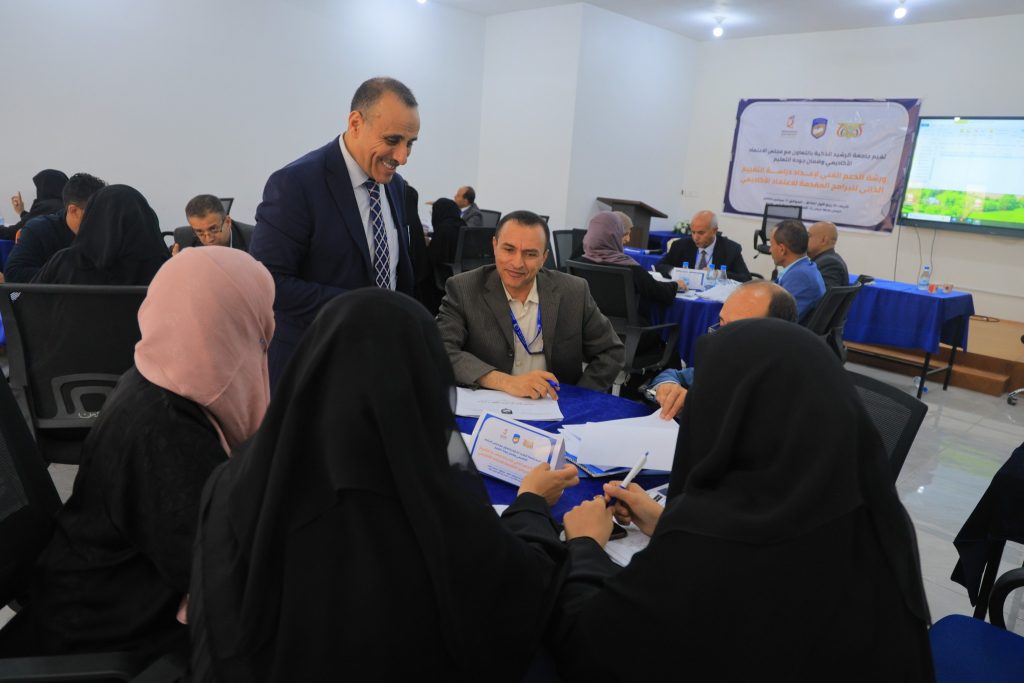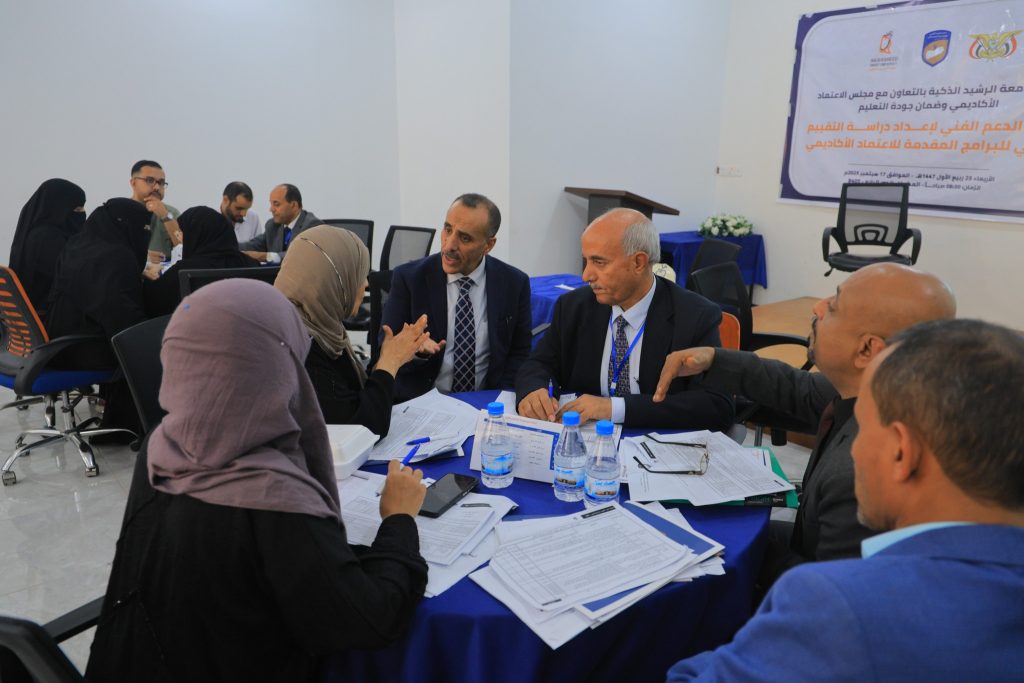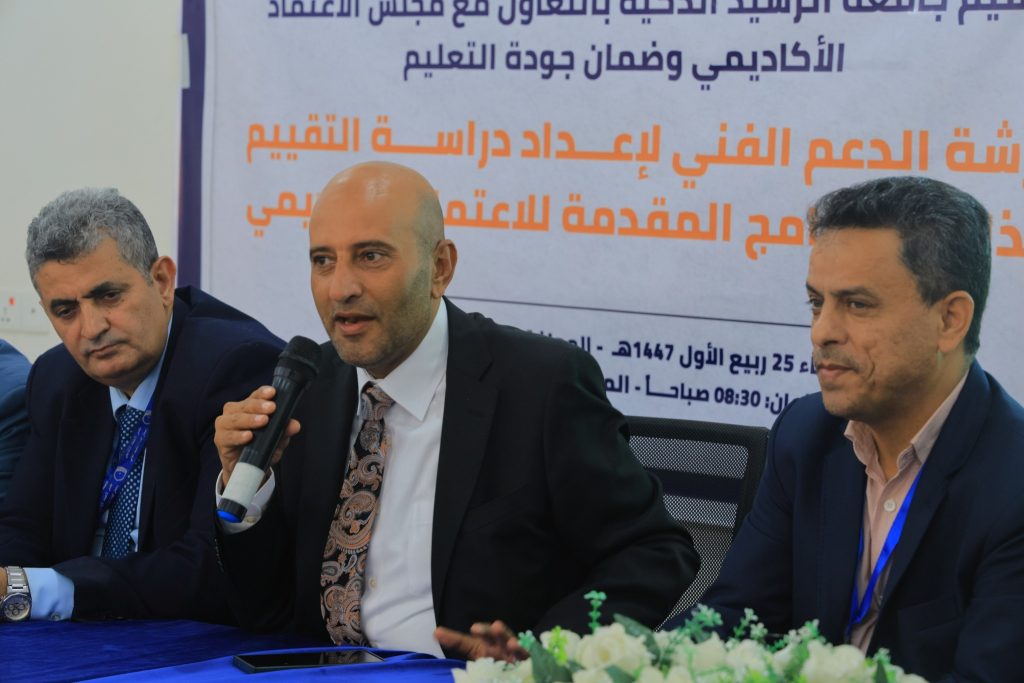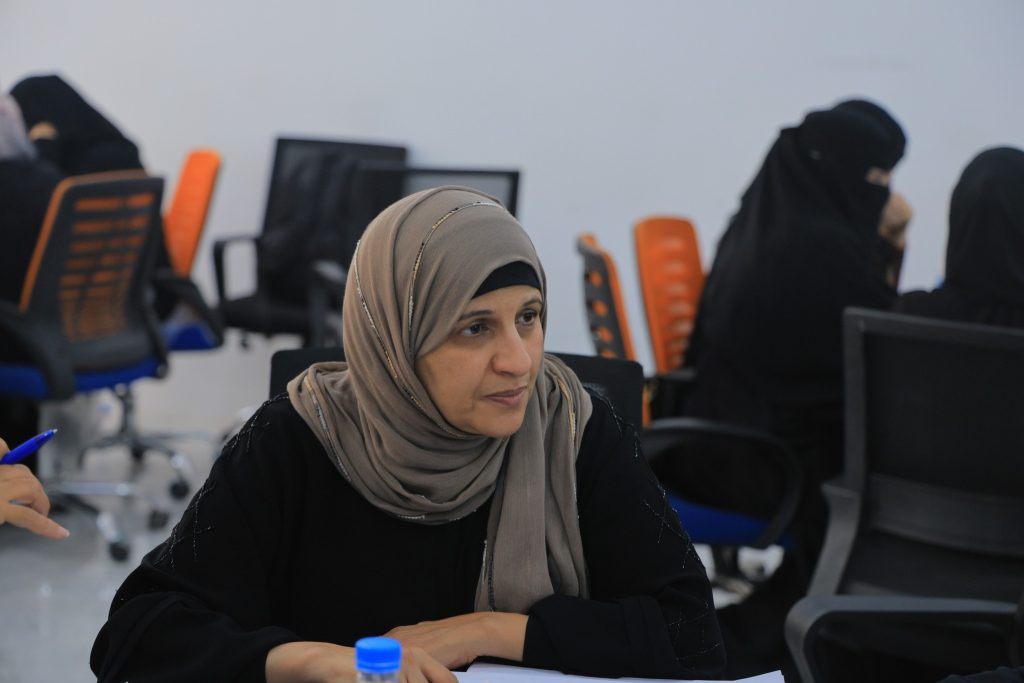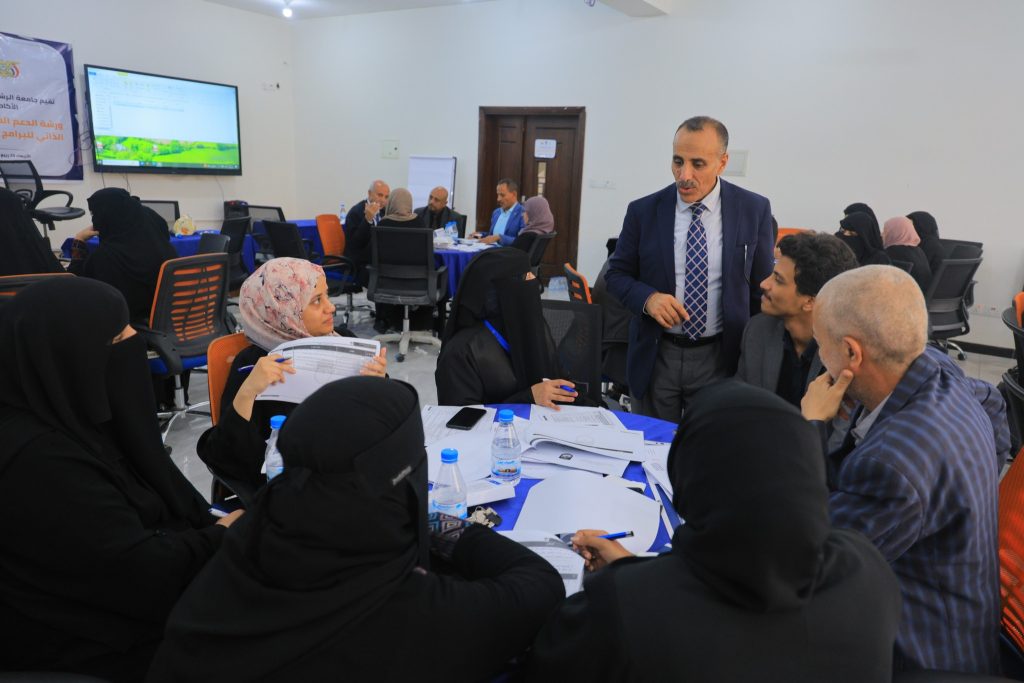Ar-Rasheed Smart University organizes a training workshop in partnership with the Academic Accreditation Council to support the development of self-assessment studies for seven academic programs.
In the halls of Ar-Rasheed Smart University—where aspirations intersect with strategic visions and academic ambitions evolve into tangible steps toward the future—the university continues its journey to embed a culture of quality and establish pillars of academic accreditation. In this context, and in collaboration with the Academic Accreditation and Quality Assurance Council for Higher Education, the university organized an extensive training workshop on Wednesday, September 17, 2025, dedicated to technical support for preparing self-assessment studies for seven academic programs submitted for programmatic accreditation: Laboratory Medicine, Information Technology, Graphics and Multimedia, International Business Administration (English), Business Administration (Arabic), and Accounting (Arabic and English).
This workshop builds upon the recently signed agreement between the university and the council, reflecting the university’s commitment to implementing the highest standards of academic quality.
The workshop commenced in a solemn atmosphere with a recitation from the Holy Qur’an and the national anthem. Prof. Dr. Abdulhameed AShuja’, Dean of Development and Quality Assurance Center, welcomed attendees, emphasizing that this workshop marks a pivotal milestone in the university’s path toward academic accreditation for its programs. He described it as a practical step that embodies the university’s determination to translate its vision and efforts into measurable achievements in the field of quality and academic excellence.
Mr. Faisal Al-Zubairi, Chairman of the University’s Board of Trustees, expressed his appreciation for the technical support team led by the council’s president. He noted that since its founding, Ar-Rasheed Smart University has placed quality at the heart of its strategy, drawing on the extensive academic experience of its rector. This foundation has enabled the university to adopt and implement quality standards from its earliest steps.
He affirmed that the university’s pursuit of programmatic accreditation is not a passing choice, but a deliberate move rooted in a deep understanding of quality as a cornerstone of the educational system both locally and internationally. He also pledged the university’s commitment to incorporating the council’s feedback and completing the self-assessment reports in the coming period.
In his remarks, Prof. Dr. Adel Al-Matari, President of the Academic Accreditation Council, stated that the council’s visit to Ar-Rasheed Smart University is part of its mission to support universities and empower them to move confidently toward programmatic accreditation.
He praised the university’s distinguished presence among its peers, despite its recent establishment, attributing this success to its clear vision and steadfast belief in the importance of quality and accreditation. He also commended the pioneering role of the university’s rector, Prof. Dr. Abdul Latif Haidar, who has made quality a foundational culture in Yemeni higher education and continues to apply it rigorously at Ar-Rasheed Smart University.
During the workshop, Dr. Mohammed Al-Sharjabi, the council’s advisor, delivered a rich presentation on the standard framework for academic accreditation and the methodology for preparing self-assessment reports in accordance with programmatic standards. His presentation opened new horizons for participants to better understand accreditation requirements and quality assurance.
The workshop brought together 45 participants, including college deans, department heads, faculty members, administrative directors, and members of self-assessment committees. It featured interactive sessions filled with constructive discussions, reinforcing the university’s commitment to quality and its strategic partnership with the council.
The workshop covered eight core standards: program mission, goals, and learning outcomes; academic programs and course content; program management; faculty members; students; educational facilities and infrastructure; academic resources; and quality assurance and continuing education.
Participants were divided into working groups under the supervision of council experts to discuss each standard individually. This approach fostered positive dialogue and fruitful engagement. The workshop concluded with a strengthened awareness among academic leaders of the accreditation methodology, paving the way for Ar-Rasheed Smart University to advance decisively toward programmatic accreditation.
In its practical dimension, the workshop featured eight working groups, each assigned to one of the academic standards under direct supervision of council experts. Responsibilities were distributed as follows: Prof. Dr. Naji Houmash led the discussion on program mission, goals, and learning outcomes; Dr. Abdulrahman Al-Sa’fani presented an in-depth view of academic programs and course content; Prof. Dr. Adel Al-Matari addressed program management; Prof. Dr. Najeeb Al-Maghribi focused on faculty standards; Dr. Huda Al-Sanhani tackled student-related issues; Prof. Dr. Mansour Marhoob discussed facilities and infrastructure; and Dr. Mohsen Al-Hazmi covered two integrated standards: academic resources and quality assurance and continuing education.
At the conclusion of the sessions, participants unanimously agreed that the workshop was not merely a technical training, but a strategic step toward embedding a culture of quality in Yemeni universities. It also reflected a conscious and effective partnership between the Academic Accreditation Council and educational institutions—enhancing opportunities for sustainable development and aligning with the evolving demands of higher education at both regional and international levels.
The workshop witnessed notable attendance from university leadership, including:
Prof. Dr. Saif Salam Al-Hakeemi, Dean of Student Affairs; Prof. Dr. Ikram Al-Iryani, Dean of the College of Medicine and Health Sciences; Assoc. Prof. Dr. Abdulmalik Mo’men, Dean of the College of Engineering and Technology; Prof. Dr. Abdulkhaleq Tawaf, Dean of the College of Finance and Business; department heads; and Mr. Khaled Ali Al-Khader, Secretary-General of the University.
